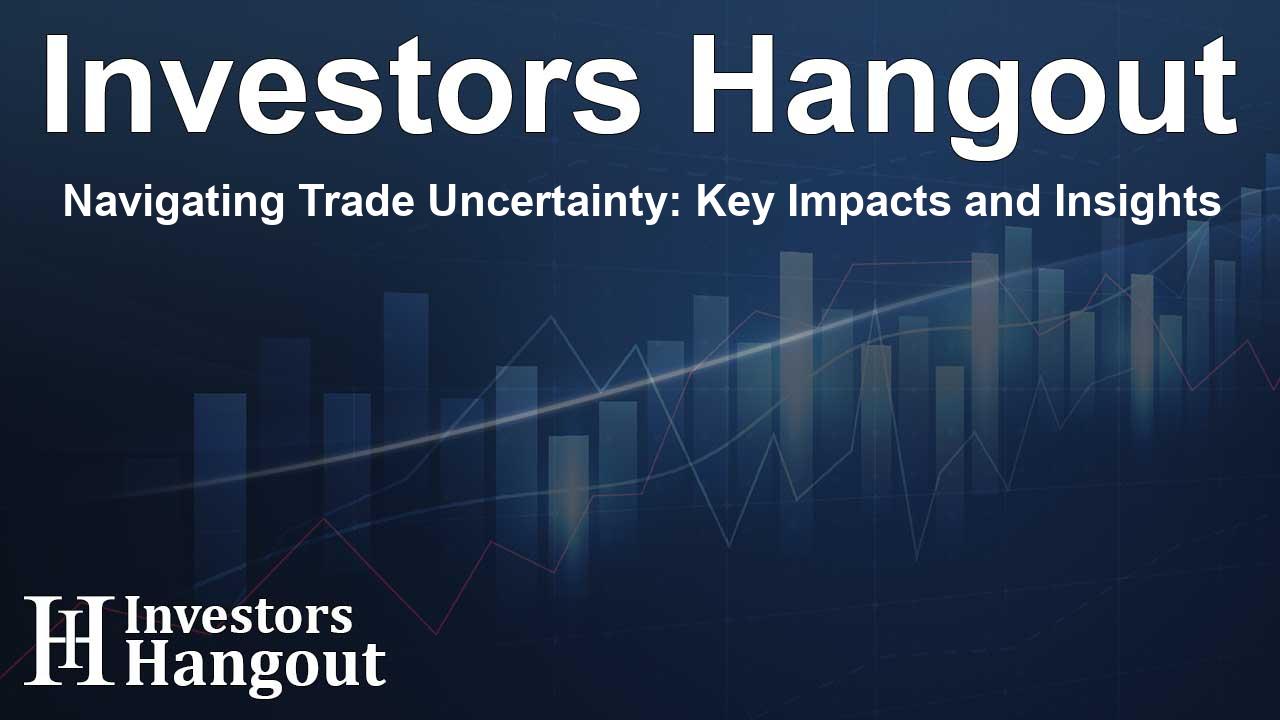Navigating Trade Uncertainty: Key Impacts and Insights

Understanding the Uncertainty in Global Trade
The latest global trade update from UNCTAD emphasizes a critical point: the prevailing threat to trade is not tariffs but rather the growing uncertainty surrounding policies. Businesses typically find it manageable to cope with increasing costs when they are predictable. However, planning becomes significantly more challenging in an environment rife with fluctuating trade rules.
Causes of Policy Uncertainty
Recent data reveals that the world is grappling with unprecedented levels of policy unpredictability. This situation is largely fueled by geopolitical tensions, competitive dynamics between various industries, and countries prioritizing their individual agendas through various border measures. The merger of these factors is creating a landscape where businesses feel uneasy.
The Fallout: Economic Implications
The UNCTAD report clearly outlines the repercussions of this uncertainty. It points to nervous capital markets, disrupted supply chains, and a diminishing trust among trading partners—elements that threaten the integrity of international trade relationships. Such an atmosphere makes it difficult for companies to engage in long-term planning, which is vital for business expansions and investments.
Markets React to Unpredictability
As a result of these challenges, import volatility has shown significant escalation, even prior to the announcement of new tariffs. Companies have begun to take precautionary steps by expediting shipments, increasing inventory levels, and opting for faster but more costly air freight options as a countermeasure against potential disruptions.
The Reaction to Established Tariffs
Interestingly, the official imposition of tariffs led to a decrease in volatility. This suggests that businesses, though subjected to heightened costs, have begun to adapt to the established policy landscape. Still, the UNCTAD's World Trade Uncertainty Index has reflected a sharp increase in recent times, highlighting the persistent economic anxieties that accompany rising trade uncertainty.
Long-term Repercussions and Investment Hesitance
The impact of this uncertainty extends to delaying essential investment decisions, with many companies hesitant to expand their operations or hire new staff. This hesitance permeates through various sectors and is particularly evident in non-essential retail consumption. For instance, the Consumer Discretionary Select Sector SPDR Fund (XLY) has only seen a modest increase of 3.54% year-to-date, starkly underperforming compared to the broader market.
The Risk of Retaliation
As agreements appear increasingly fragile and rules seem to be applied selectively, there is a growing likelihood that countries will resort to retaliatory measures instead of pursuing cooperative approaches. This scenario could result in adverse outcomes for all trading partners involved.
The Uneven Playing Field
Small exporters and developing nations bear the brunt of this instability. While multinational corporations may have the resources to recalibrate their supply chains, smaller firms often lack both the financial capital and operational flexibility. For example, an export-focused economy like Bangladesh has seen the negative effects of tariffs, leading to canceled orders and erratic demand for its apparel products.
Challenges for Developing Economies
In contrast, nations like Ethiopia depend heavily on the U.S. African Growth and Opportunity Act (AGOA) for their export markets. However, the persistent uncertainty surrounding these programs has repeatedly discouraged investor confidence, complicating their economic landscape further.
As global trade evolves, developing economies are finding it increasingly difficult to create a stable environment conducive to attracting investment. Small businesses, in particular, are facing mounting pressures due to limited access to credit, fewer shipping options, and rigid production capabilities. Consequently, rumors of policy changes can translate into significant risks for these companies.
Conclusion: Preparing for Future Challenges
As the landscape of global trade continues to shift, understanding the dynamics of policy uncertainty is vital for businesses and investors alike. By keeping an eye on these evolving elements, stakeholders can better prepare themselves for the implications of these ongoing changes.
Frequently Asked Questions
What is the primary threat to global trade?
The primary threat is not tariffs but rather the growing uncertainty surrounding various trade policies.
How does uncertainty affect businesses?
Uncertainty complicates long-term planning, leads to delayed investments, and can cause companies to hesitate with hiring and expansion.
What is the impact of tariffs on import volatility?
Interestingly, import volatility surged before new tariffs were announced, but stabilized once tariffs were officially implemented as businesses adapted.
Which sector has shown underperformance in the current climate?
The Consumer Discretionary Select Sector SPDR Fund (XLY) has notably underperformed with a modest year-to-date increase of 3.54%.
How do developing economies deal with trade instability?
Developing economies often struggle with instability as they rely on consistent trade rules to attract investment and integrate into the global market.
About The Author
Contact Logan Wright privately here. Or send an email with ATTN: Logan Wright as the subject to contact@investorshangout.com.
About Investors Hangout
Investors Hangout is a leading online stock forum for financial discussion and learning, offering a wide range of free tools and resources. It draws in traders of all levels, who exchange market knowledge, investigate trading tactics, and keep an eye on industry developments in real time. Featuring financial articles, stock message boards, quotes, charts, company profiles, and live news updates. Through cooperative learning and a wealth of informational resources, it helps users from novices creating their first portfolios to experts honing their techniques. Join Investors Hangout today: https://investorshangout.com/
The content of this article is based on factual, publicly available information and does not represent legal, financial, or investment advice. Investors Hangout does not offer financial advice, and the author is not a licensed financial advisor. Consult a qualified advisor before making any financial or investment decisions based on this article. This article should not be considered advice to purchase, sell, or hold any securities or other investments. If any of the material provided here is inaccurate, please contact us for corrections.
